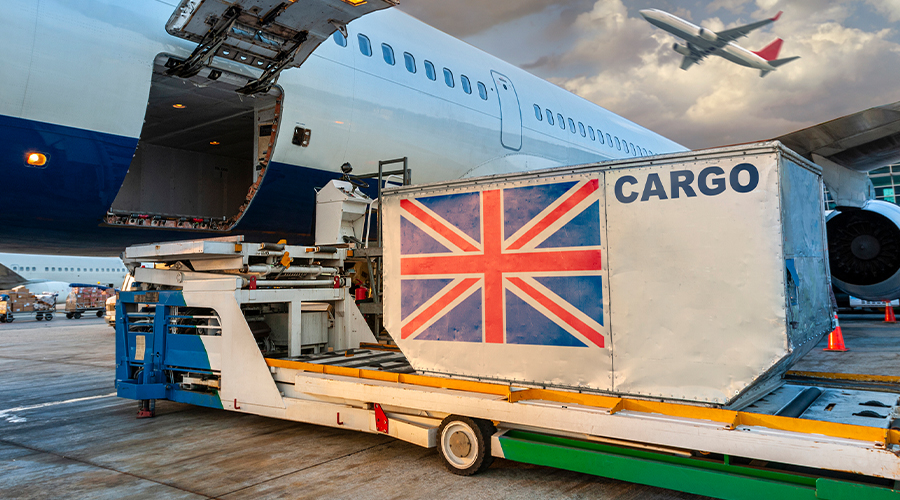

Expanding into international markets presents exciting opportunities, however businesses looking to export goods, technology and certain services from the UK must also navigate complex UK export controls to ensure compliance with the law. In this article, we provide a general overview of UK export controls and consider relevant laws, export licences, dual-use goods, sanctions and anti-money laundering.
What are the keys laws that govern UK export control?
Several laws and regulations govern UK export controls, including:
- The Export Control Act 2002, which establishes the legal basis for controlling the export of military and dual-use goods
- The Sanctions and Anti-Money Laundering Act 2018, which provides the framework for imposing trade sanctions and preventing financial crime
- The Customs and Excise Management Act 1979, which regulates customs procedures and penalties for non-compliance
- UK Export Control Orders, which set out specific licensing requirements and restrictions.
Which UK government departments oversee export control?
In the UK, there are a number of government agencies that oversee compliance with export controls, including:
- The Export Control Joint Unit (ECJU), which handles export licence applications and enforcement
- The Department for Business and Trade (DBT), which oversees trade policy and regulations
- The Office of Financial Sanctions Implementation (OFSI), which enforces financial sanctions and maintains the UK Sanctions List (a list that sets out which people, entities and ships are designated or specified under regulations made under the Sanctions and Anti-Money Laundering Act 2018)
- The National Crime Agency (NCA), which investigates financial crime, including money laundering related to exports
- HM Revenue & Customs (HMRC), which ensures compliance with customs and export control rules.
What types of licences are required?
In the UK, businesses exporting controlled goods, technology, or software must obtain an export licence from the ECJU. This requirement applies to military items, dual-use goods (which have both civilian and military applications and are summarised below), and items subject to trade sanctions.
The type of licence required depends on factors such as the nature of the goods, the destination, and the end use. There are several types of export licences available including:
- Open General Export Licences (OGELs) which cover specific low-risk exports and allow multiple shipments without needing individual approval
- Standard Individual Export Licences (SIELs) which are required for specific transactions and are granted on a case-by-case basis
- Open Individual Export Licences (OIELs) which provide greater flexibility, allowing multiple shipments to named destinations over a set period.
Applications are submitted via the UK’s online export licensing system (SPIRE), and failure to secure the necessary licence can result in legal penalties, including fines or imprisonment.
Understanding dual-use goods
A key area of UK export controls is the regulation of dual-use goods, which are items that can be used for both civilian and military purposes. These include:
- Advanced materials
- Telecommunications equipment
- Aerospace components
- Certain chemicals and software.
If your business is exporting dual-use items, you must check whether your products require an export licenec from the ECJU. Even intangible exports, such as providing technical assistance or transmitting controlled software, may require a licence.
Sanctions and embargoes
UK businesses must also ensure compliance with trade sanctions and embargoes, which are restrictions placed on certain individuals, organisations or countries. These measures are enforced to:
- Prevent the financing of terrorism
- Restrict trade with regimes that violate human rights
- Enforce international agreements.
As mentioned above, the UK Sanctions List, maintained by the OFSI, provides details on restricted individuals and entities. We recommend that companies screen their business partners and customers against this list before engaging in trade.
Anti-Money Laundering (AML) compliance in exporting
Money laundering is a significant risk in international trade and AML compliance is crucial for businesses to protect themselves from fines and penalties, criminal charges and reputational damage. To prevent unlawful financial activity, we recommend that businesses implement robust AML measures, including:
- Customer Due Diligence (CDD) – verifying the identity of clients and understanding the nature of business relationships
- Transaction monitoring – keeping an eye on unusual payment patterns, such as payments from sanctioned entities
- Reporting suspicious activity – if there is any suspicion of money laundering, businesses must report it to the UK’s NCA.
Ensuring compliance and avoiding penalties
As mentioned above, failure to comply with UK export controls and AML can lead to severe consequences, including legal penalties, reputational damage and criminal charges.
By addressing export control requirements from the outset, your businesses can confidently expand into international markets while avoiding regulatory challenges. If you require guidance on how to export your business’ goods or services from the UK, please do get in touch.










